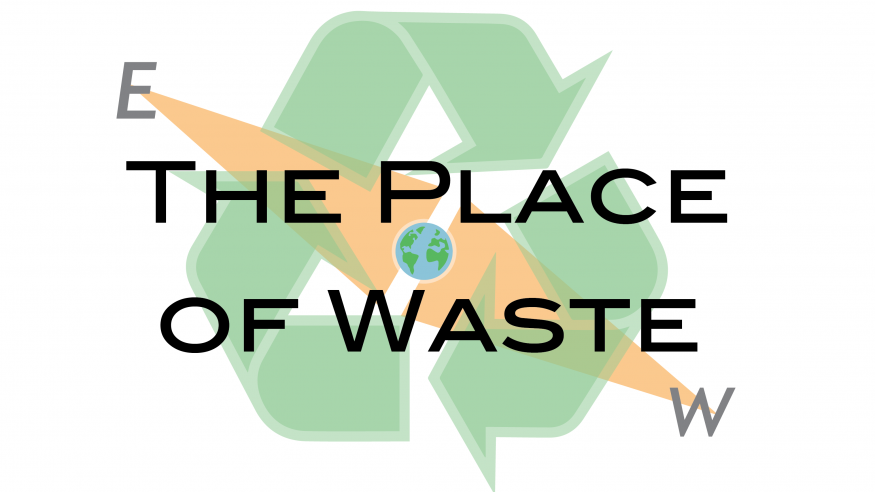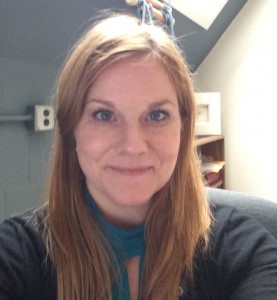
Ohio Wesleyan To Talk Trash During 2015-2016 Sagan National Colloquium
Speaker Series to Feature Discussions of ‘Waste, Sustainability, and Environment’ Beginning Jan. 27
DELAWARE, Ohio – Think talking trash is a waste of time? Think again, says a group of Ohio Wesleyan University professors who believe the issue of waste provides the perfect lens through which to examine cultural, political, environmental, and other global issues.
The OWU faculty members have been using a $50,000 Exploration Grant from The Henry Luce Foundation to collaborate with universities in Japan, South Korea, and Taiwan to study Eastern and Western concepts of waste and how Asian countries are working to reduce waste within their distinct economic and cultural environments.
The international exploration will continue this semester as part of the 2015-2016 Sagan National Colloquium speaker series, “The Place of Waste: Exploring Asian and Western Perspectives on Waste, Sustainability, and Environment.”
The series will kick off at 7 p.m. Jan. 27 when Sarah Moore, Ph.D., presents “Tracking Trans-national Hazardous Waste Trading: Methodological Problems and Partial Solutions.” Moore, assistant professor of geography at the University of Wisconsin-Madison, will speak on the third floor of Merrick Hall, 65 S. Sandusky St., Delaware.

Moore’s research focuses on the political economy and regulation of hazardous-waste trading in North America. She is the co-author of “Environment and Society: A Critical Introduction” and has earned National Science Foundation funding to work with two other primary investigators to create and analyze data tracking hazardous materials traded for disposal or recycling among Canada, Mexico, and the United States.
Additional presentations scheduled for “The Place of Waste” Sagan National Colloquium are as follows. For the most up-to-date information, visit https://owu.edu/snc.
- 7 p.m. Feb. 4 – Robin Nagle, Ph.D., director of the Draper Interdisciplinary Master’s Program within the Graduate School of Arts and Science at New York University. A cultural anthropologist, Nagle’s research emphasizes the many forms of labor and infrastructure required by waste and the organizational demands it places on urban areas. She is the author “Picking Up” and the anthropologist-in-residence for New York City’s Department of Sanitation. She will speak on the third floor of Merrick Hall.
- 7:30 p.m. Feb. 22 – Max Liboiron, Ph.D., assistant professor of sociology and environmental sciences at Memorial University of Newfoundland. Liboiron will discuss “Scientific Cultures and Controversies Over ‘Matter Out of Place.’ ” The founder and director of the Civic Laboratory for Environmental Action Research (CLEAR), Liboiron’s research focuses on how harmful yet invisible threats such as disasters, toxicants, and marine plastics become visible in science and evident in activism. She will speak in Benes Room B of Hamilton-Williams Campus Center, 40 Rowland Ave., Delaware.
- 7 p.m. April 11 – Josh Lepawsky, Ph.D., associate professor of geography at Memorial University of Newfoundland. Lepawsky will discuss “Electronic Waste or How to Love a Mind Bomb.” His research examines the connections between geography and technology with a particular focus on the trade and traffic of e-waste in Southeast Asia. His recent publications examine the relationships between waste and value in global commodity chains. Lepawsky also is examining the prospects for “ethical” trade in e-waste and electronic rubbish. He will speak in Benes Room B of Hamilton-Williams Campus Center.
- Noon April 18 – Peter Wynn Kirby, Ph.D., an environmental specialist and waste ethnographer in the School of Geography and the Environment, University of Oxford, United Kingdom. Kirby will discuss “Smuggling, Burning, Burying, Shredding, Knowing: Varieties of Waste Work in East Asia.” His research focuses on toxic waste and nuclear risk in Japan – notably in the irradiated aftermath of the 2011 tsunami disaster in Tohoku – and scrutinizes the cultural underpinnings of environmental attitudes, from popular culture to conceptions of purity and pollution. He also researches transnational flows of waste and the resulting toxic fallout in China and elsewhere in East Asia (and beyond). He will speak on the third floor of Merrick Hall.
This year’s Sagan National Colloquium is being organized by Ohio Wesleyan faculty members John Krygier, Ph.D., director of Environmental Studies; James Peoples, Ph.D., director of East Asian Studies; and Nick Crane, Ph.D., visiting assistant professor of geography.
“Waste is a complex subject,” they write of the colloquium. “[Waste is] simultaneously the discarded excess of our everyday lives and a resource on which other people depend for their livelihood; a problem for governments and businesses; and an idea with wide ranging cultural and social connotations. Beliefs about waste and waste-management practices are culturally and socially specific and vary from region to region. Yet with increasing globalization, practices, and beliefs about waste in any particular place are consequential on a global scale.”
About the Sagan National Colloquium
Founded in 1984, the Sagan National Colloquium seeks annually to address in-depth an issue of national or global importance. The colloquium is funded by an endowment from 1948 OWU alumni Margaret (Pickett) Sagan and John Sagan, both deceased. Past Colloquium speakers have included social activist Gloria Steinem, authors Barbara Ehrenreich and Kurt Vonnegut, Nobel Peace Prize winner Jody Williams, and former President Gerald Ford. Learn more at http://snc.owu.edu.
About Ohio Wesleyan University
Founded in 1842, Ohio Wesleyan University is one of the nation’s premier liberal arts universities. Located in Delaware, Ohio, the private university offers 87 undergraduate majors and competes in 23 NCAA Division III varsity sports. Ohio Wesleyan combines a challenging, internationally focused curriculum with off-campus learning and leadership opportunities to connect classroom theory with real-world experience. OWU’s 1,675 students represent 43 U.S. states and territories and 33 countries. Ohio Wesleyan is featured in the book “Colleges That Change Lives,” listed on the latest President’s Higher Education Community Service Honor Roll with Distinction, and included in the U.S. News & World Report and Princeton Review “best colleges” lists. Learn more at www.owu.edu.
